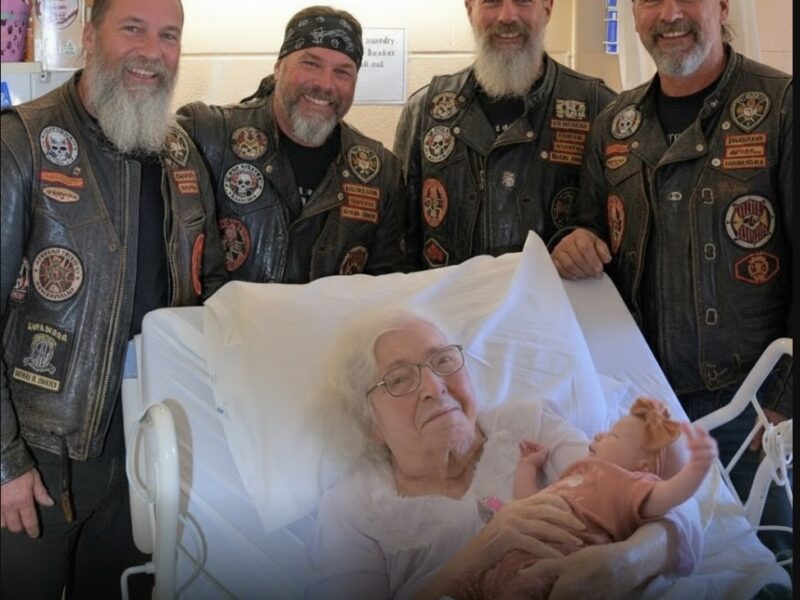For years, I bit my tongue and smiled through the insults, convincing myself silence was easier than confrontation. But one night, someone finally said what I’d been too afraid to say—and it changed everything.
My name is Emily. I’m thirty-four, married to Ethan, thirty-six, and we’ve been together for eight years. I’m an English teacher at a public high school in Massachusetts. It’s messy and exhausting, but I love it. Watching shy kids find their voices or seeing a student finally grasp a metaphor—they’re the moments that remind me my work matters.
The only person who’s never seen it that way is my mother-in-law, Karen.
Karen is the type who wakes up looking like she stepped out of a catalog—silk robe, perfect hair, perfume that costs more than my rent. She drinks imported wine, “plays” tennis twice a week, and manages to sound condescending even when saying hello.
The first time Ethan introduced me to her, I knew she’d already made up her mind about me. Her house was immaculate—white couches, lemon-polished air, and the kind of silence that felt judgmental. She looked me over, smiled thinly, and said, “So, you teach? How adorable.”
I said yes, high school English.
She tilted her head. “Oh, teenagers. How brave. I could never do that—but someone has to, I suppose.”
That was the beginning. From then on, every family dinner, every birthday, every holiday came with her backhanded comments dressed as compliments.
“You must love those long summers off—what a cushy life.”
“It’s sweet that you’re passionate about something. Even if it doesn’t really pay.”
Once, over Easter dessert, she smiled and said, “Not everyone’s meant for a real career. I’m sure you know that, dear—you’re just a teacher.”
I remember my fork halfway to my mouth, wanting to disappear. Ethan would defend me gently, telling her to stop, but Karen always brushed it off. “She’s sensitive. I just want what’s best for my son.”
It all came to a breaking point last December, at her husband Richard’s 70th birthday dinner. We were at one of those restaurants with velvet booths and gold menus where ordering a Diet Coke feels like a crime. Karen arrived late, wrapped in designer cream and diamonds, smiling like she owned the place.
She was polite for the first half-hour. Then the wine started flowing.
“So, Emily,” she said, swirling her glass, “still shaping young minds?”
“Yes,” I said evenly. “We’re reading The Great Gatsby right now.”
Her eyebrows shot up. “Ah. Teaching them about poor people pretending to be rich. How relatable.”
A few awkward laughs from the table. Ethan squeezed my knee under the table.
Karen wasn’t done. “I’ve always thought teaching was more of a hobby than a career. Anyone with patience and a few crayons could do it.”
“Mom, that’s enough,” Ethan said sharply.
But she waved him off, chuckling. “Oh, come on. I’m just saying! It must be hard, standing all day for what—forty thousand a year?”
“Actually, sixty-two,” I said quietly.
She threw her head back and laughed. “Sixty-two! Oh honey, that’s what I spend on handbags.”
The room fell silent. My stomach sank. I stared at my plate, mortified. That’s when Richard set his fork down.
“Karen,” he said, calm but cutting, “that’s enough.”
She blinked. “I’m just teasing.”
“No,” he said. “You’re humiliating her.”
Her smile faltered. “Richard, not here—”
He leaned forward, voice low and steady. “You’ve spent years belittling her. You’ve forgotten where you came from.”
She froze. “What’s that supposed to mean?”
“When I met you,” he said, “you had nothing. No degree, no home, no job. You told me your father had kicked you out. Do you remember who took you in?”
Karen’s face went pale.
“It was your high school English teacher,” Richard continued. “Miss Davis. You cried on her couch. She gave you food, a bed, and money for night school. You told me she saved your life.”
The table was silent. Karen’s hand trembled. “That was years ago—”
“Exactly,” he said. “Years long enough for you to forget her kindness. Long enough to forget what it feels like to be small and helped.”
Karen’s fork slipped from her hand. She stood up abruptly, grabbed her purse, and walked out without another word.
The rest of us sat in stunned silence. When the check came, Richard paid for everyone. As we stood to leave, he rested a hand on my shoulder. “You do more good in one semester,” he said softly, “than most people do in a lifetime.”
That night, I cried. Not from hurt, but from relief. For the first time, someone had said it. Someone had defended me—not because they had to, but because I deserved it.
After that night, Karen disappeared. No calls. No brunch invites. Months of quiet. Honestly, it was peaceful.
Then one evening, Ethan came home pale. “It’s Mom,” he said. “She’s in trouble.”
Turns out, her perfect life was crumbling. She’d sunk her savings into a “luxury spa franchise” that turned out to be a scam. She was drowning in debt, maxed-out credit cards, calls from collectors.
I agreed to see her. When I arrived, the woman who opened the door barely resembled the Karen I knew. No makeup. No jewelry. Just a cardigan and red-rimmed eyes. Her house looked empty, lifeless.
“I don’t know what to do,” she whispered.
I should’ve felt satisfaction. Karma, poetic justice—whatever you call it. But all I felt was sadness.
A few days later, I transferred two thousand dollars from my savings and sent it to her with a note: For a new start.
That night, she called me, her voice trembling. “Why would you help me after everything I said to you?”
“Because teachers don’t stop helping people just because they’re mean,” I said.
There was silence, then a soft, broken laugh that turned into a sob.
Months passed, and slowly, something shifted. One afternoon, Karen showed up unannounced at my school’s Shakespeare festival. My students had spent weeks building props and sewing costumes from thrift-store scraps. I watched her slip into a front-row seat quietly, no comments, no performance—just watching.
After the play, she hugged me for the first time. “I get it now,” she whispered. “Teaching isn’t small. It’s everything.”
After that, she started volunteering twice a week at an adult literacy center. She helped people write résumés, read to adults studying for GEDs, and sometimes called me to tell stories about them—how one reminded her of herself at twenty.
She still bragged, but now it was about my students. “My daughter-in-law teaches future leaders,” she told her friends. “One of them got into Columbia!”
Then last spring, Richard passed away quietly in his sleep. The funeral was small and somber. Karen stood beside me the entire time, her hand gripping mine like she’d never let go.
As the casket lowered, she turned to me with tear-filled eyes and whispered, “He was right about you.”
And for the first time since I joined this family, I believed she meant it.
Sometimes people take years to see your worth. Sometimes it takes losing everything to remember what matters. But that night, at that restaurant, when Richard stood up for me, he didn’t just silence a cruel voice—he gave Karen a mirror. And eventually, she looked into it.


